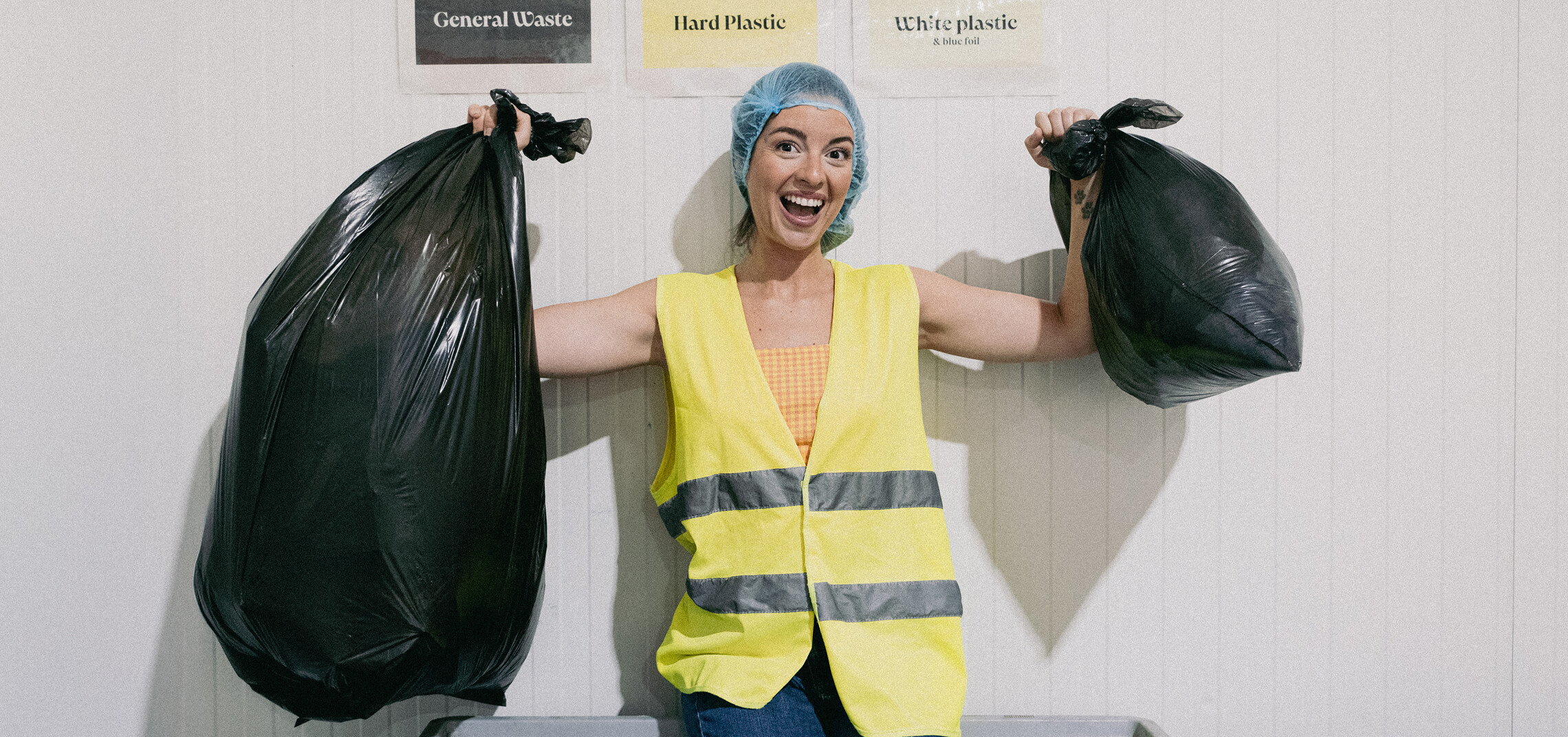The Wild Theory of Building Something: Meet our founder and CEO
Reflections of a (mostly) objective third party. I work for the guy.
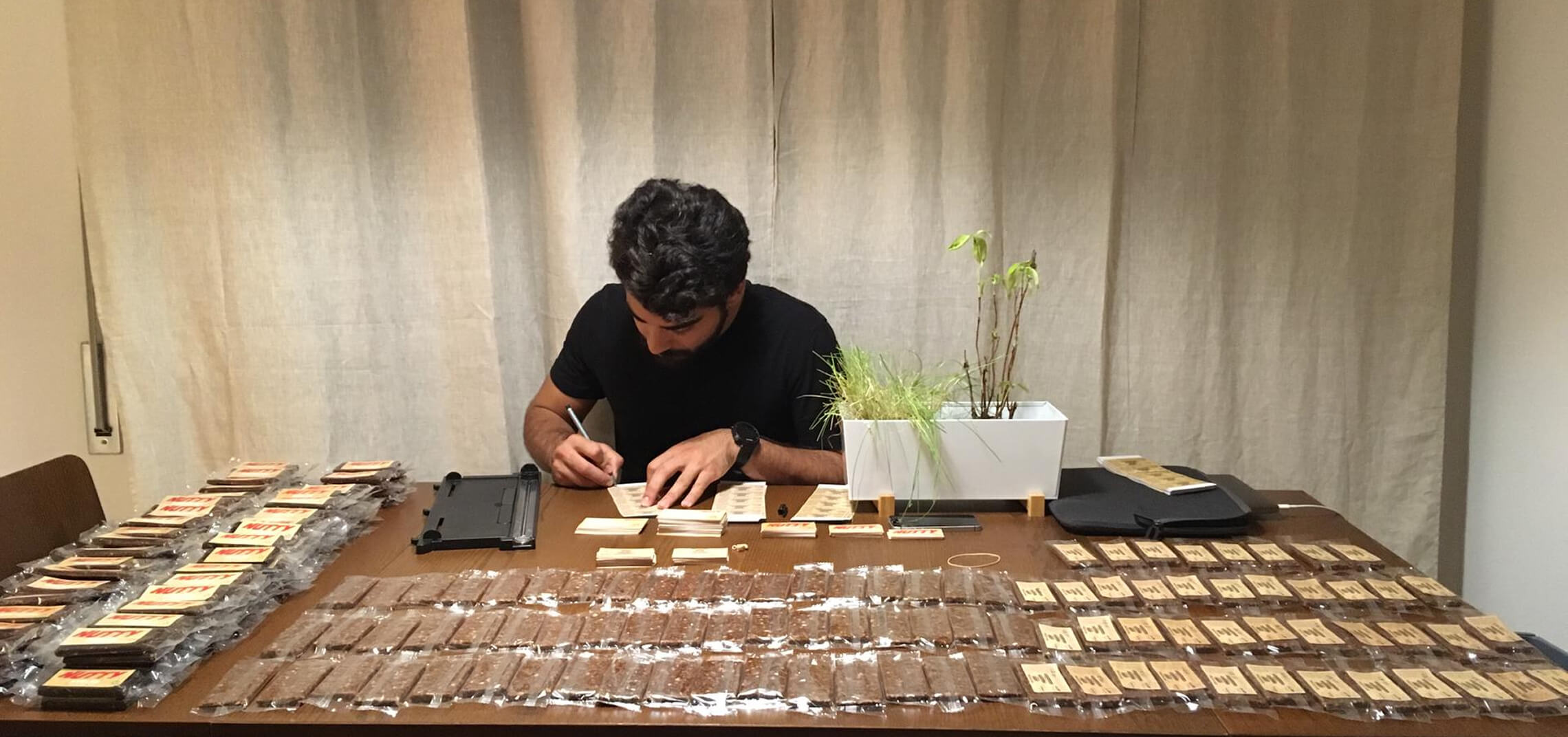
A beginning with no Blueprints
WildBran wouldn’t be here today without this one guy who, on the 24th March 2017, ran to the registry in Lisbon, creating the company at just 23 years old. That person’s name is Henrique.
I joined WildBran a little over two years ago, which in startup terms basically means I’m a company dinosaur. At the time, the team was considerably smaller and we didn’t really have an in-house HR manager, so the recruiting interview was led by our CEO Henrique, as I would be working in sales, directly reporting to him – privileged, am I right? Or severe lack of luck. I’ll let you be the judge of that.
After two years working closely to him - first in sales, then during our brand launch, now in marketing - I got to know him a bit better. As close workers usually do. Not all at once, but gradually, beyond the first impressions someone like him tends to give off. (I.e: Cocky bastard, cough cough).
I once heard Henrique say he’s like onions – i.e: because of the layers. You can count on Shrek for some serious pearls of wisdom that can still be regurgitated at you 24 years later on. But, from what I got to know of him, I’d have to agree. He’s a hell of an onion.
As with most founder / CEO stories, Henrique’s doesn’t follow a neat script. At all - otherwise it wouldn’t make for an interesting story. He failed the 9th grade. Spent more time thinking about Indiana Jones and shark expeditions in the Great Barrier Reef than math problems. He went to the German School in Lisbon, one of the strictest in the country, but got written off by his teachers as studying wasn’t his cup of tea and he did the absolute bare minimum just to pass. Troublemaker and all that. While his classmates were lining up for university entrance exams, he was already questioning the whole premise of it. He didn’t know what he wanted to be. But he knew what he didn’t want: a predictable life. (Can’t relate).
His early years after high school were… eclectic. For less than two months he briefly studied Geology, then Archaeology - and quickly decided neither was for him. Why? As he so eloquently puts it:
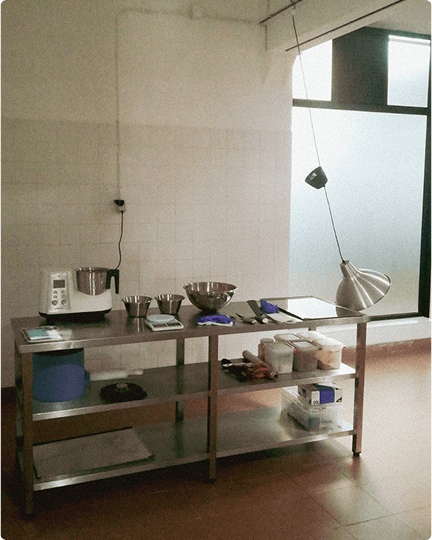
“I realized both those courses were a whole lot of stone - not even the good kind of stone - and none of the adventure.”
Then came the random jobs: scuba-diving, photography for an auction house turned into a whole rebranding effort for said auction house because he thought they needed all the help they could get, working at BNP Paribas as a German market account manager, and some early dabbling in entrepreneurship with his older brother for a 3D printer filament business that didn’t survive and another cutting laser printer business I can’t really recall the name of. That one is apparently still standing.
Again, eclectic.
WildBran: Built by Grit, Faked Tours, and Dumpling Machines
WildBran started with no machines, no team and definitely no business plan. Nada. Just a whole lot of stubbornness, grit, and YouTube tutorials. The company started in 2017 with imported snack bars, energy balls and organic beverages that Henrique would then resell to Portuguese clients. By trial and error, he eventually started doing the correct math and learned the margins weren’t adding up. Shortly after that, he pivoted to starting doing these snacks himself, by hand. He had as much experience in food production as he had running a business – i.e: Zero. But that didn’t stop him. Clearly.
This all started with a food blender, an old butcher place in Benfica that he was able to reconvert into office premises, free of charge. Rolling bars by hand, from early morning until late night, every single day. In 2019, after pivoting once more, funneling down the strategy to start producing for bigger players – aka retailers and brands – it was still just Henrique, barging into meetings at retailers’ headquarters with actual buckets of samples, uninvited, trying to secure new accounts. Anything is possible if you just believe. Right…?
When he couldn’t afford the first machines he needed, he got a loan from the bank and convinced his older brother, Duarte, to forfeit all his savings and buy 15% of WildBran – Duarte’s okay btw, didn’t end up sweeping the streets because of it. When Henrique couldn’t find any energy-ball machinery, he improvised by buying dumpling machines from China instead – and made them work – thus starting a new (off the record) trend of making energy balls out of dumpling machines.
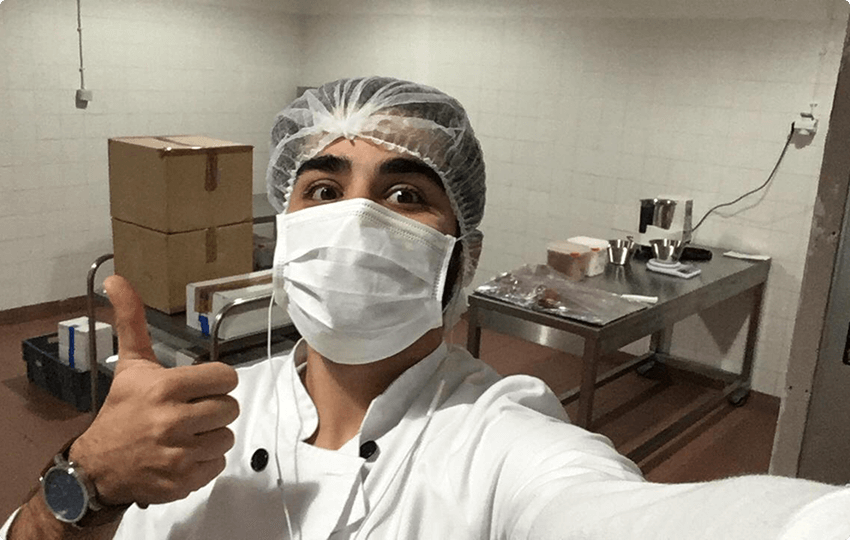
“When Henrique couldn’t find any energy-ball machinery, he improvised by buying dumpling machines from China instead – and made them work”
When he secured bigger clients and moved to a bigger location to start producing with these new machines, but didn’t have a fully working factory yet, he gave clients fake tours with friends posing as workers operating the machines and assembling fake packaging (i.e: as he was still figuring out how the hell to assemble the machines and make them work. Oh, and had no employees yet. (But, you know, details.) When he needed to land accounts, he walked into meetings he wasn’t invited to and persuaded people to hear him out.
It wasn’t clean. It wasn’t pretty. But somehow, it worked. Slowly, the mess turned into a system. The initial “chaos” turned into an actual company. A one-guy turned into a 70 plus team.
Costs and Tradeoffs of Chasing Evolution
For many of us, I think it might be difficult to fully understand someone that’s so obsessed and relentlessly focused on something, with the level of sustained commitment and eagerness he shows. But that inevitably comes at a price. The 5 a.m. wake up calls, the strict discipline and priority shifts, the no days off, the constant financial stress and the looming threat of going bankrupt tomorrow. Then finally comes “the moment” where your initial dream milestone is reached, after 5 years of this constant cycle. It’s the kind of moment that’s supposed to feel like arrival. You’ve made it there – but alas it feels empty.
Instead of fulfillment, there was burnout.
That was Henrique’s reality near the end of 2022 and beginning of 2023. He had built something real - but in trying to meet the image of what success should look like, he’d dissociated and drifted from himself.
He didn’t exactly pull a full on eat-pray-love and flee to India to find himself - but after talking to him about that period, I couldn’t help but draw a parallel between his story and Larry’s in The Razor’s Edge (yes mom, I read it - proof!). Very philosophical, quarter-life-crisis kind of book that makes you question life’s purpose and want to flee the country never looking back. But relatable too. Both Larry and Henrique got everything they thought they wanted at some point, only to realize it wasn’t what truly moved them. Or what they needed. In a nutshell - If you want more, you should read the damn book.
However, in true Henrique Vasconcelos fashion and as in Chumbawamba's 1997 hit: “He got knocked down, but he got up again.” Amidst the chaos, exhaustion, and the sudden shut down, he also found clarity: He’d been trying to be some kind of “normal” or less than himself – only to realize he wasn’t supposed to be. Essentially nothing a few hardcore antidepressants and some inner soul searching couldn’t fix.
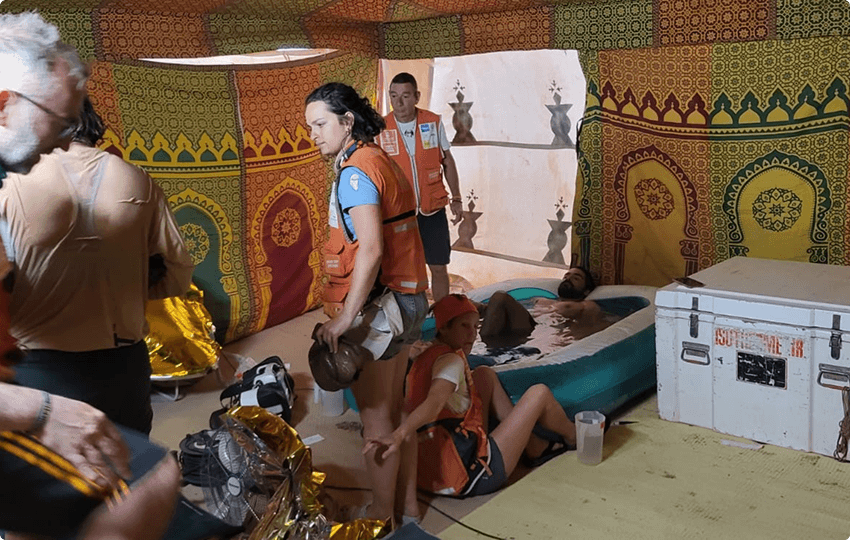
The Quintessence of Life – Kind of
Before writing this article, Henrique and I had a makeshift interview. In this “interview”, and I’m using the term loosely because we basically just talked and I recorded it, I asked about WildBran’s main milestones to date. As we diverted a bit to his personal view on main achievements he said, plain and simple: the team we have now. Cheesy, I know, but hear him out.
For a long time it was just Henrique sailing this ship; solo, adrift, completely on his own. But today WildBran isn’t powered by one person anymore. It’s a team - of people who show up, care deeply, and try things before being ready. That mindset, more than any product, is the core of what’s being built. This sure isn’t a polished success story. It’s a reflection on what it takes to build something from very little - and keep going, even when the map runs out.
With all his quirks, contradictions, and seemingly chaotic energy, Henrique's the kind of boss who’s not afraid to look stupid, and fail in public. He’s the kind of boss who’ll go on a 250km ultramarathon to promote our brand launch - nearly die of heatstroke - and still finish it. (We didn’t promote the brand launch at the marathon by the way. Bit of a whoops).
He’s also the kind of boss who sends out philosophical team emails one week about the balance between our inner Sparta (rigid, efficient, disciplined) and Athens (creative, chaotic, messy), and then follows it up with a Churchill quote and an operations update the next. He likes to keep us on our toes, you know?
He says WildBran’s success is mostly just an amalgamation of unbelievable streaks of luck - and he refuses to call himself a leader. But between you and me, if he has a leadership style, it’s this: start before you’re ready, figure it out on the way, and bring a bunch of crazy lunatics with you. Confidence when making risky and reckless decisions is key. And he has a ton of that.
Lucky bastard or not, he’s done it - and paid his dues for it. And somewhere along the way, I think he’s managed to spot each of our individual strengths, amplify them when possible, and push us to face our weaker spots. He’s propelled us to take more chances, care a little less about what other people think, and live a little more fiercely. - And yes, I’m THAT invested in a promotion, shut up.
So here’s where I’ll leave you - with one very last pearl of wisdom he wrote after nearly dying of heatstroke in the Sahara desert:
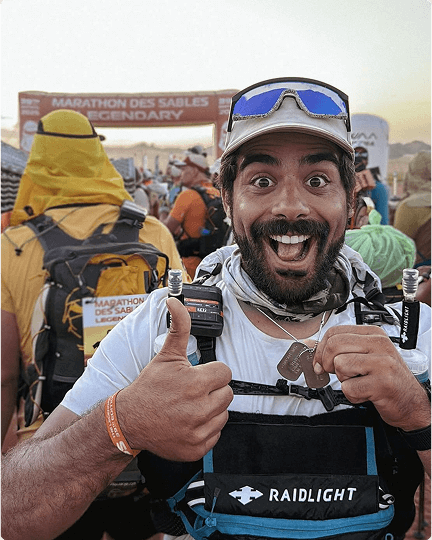
“Do hard things. Start before you’re ready. Find clarity. And love the journey - especially the people who walk it with you.”
And that, I believe, is the actual quintessence of life.


